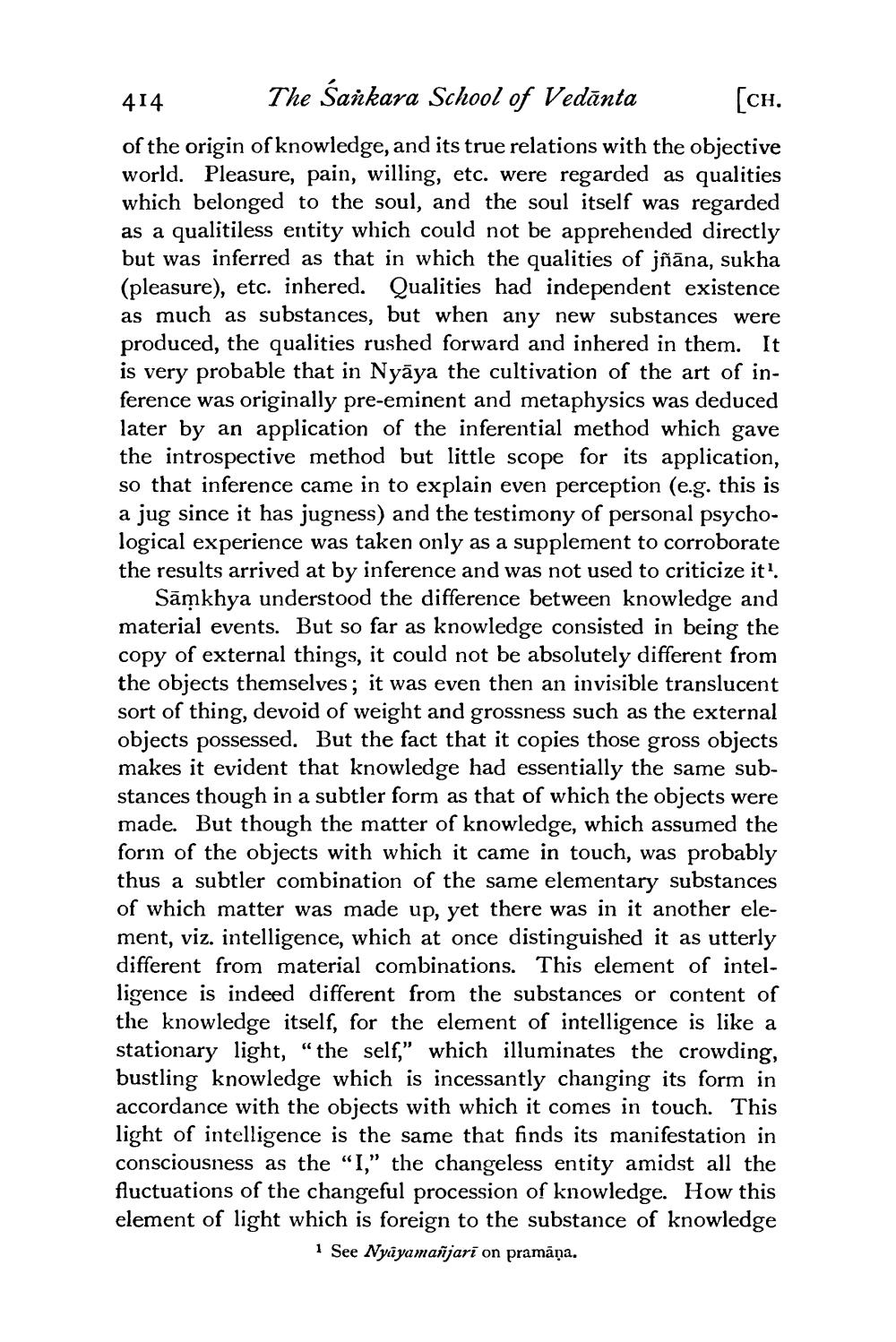________________
414
The Sankara School of Vedānta [Ch. of the origin of knowledge, and its true relations with the objective world. Pleasure, pain, willing, etc. were regarded as qualities which belonged to the soul, and the soul itself was regarded as a qualitiless entity which could not be apprehended directly but was inferred as that in which the qualities of jñāna, sukha (pleasure), etc. inhered. Qualities had independent existence as much as substances, but when any new substances were produced, the qualities rushed forward and inhered in them. It is very probable that in Nyāya the cultivation of the art of inference was originally pre-eminent and metaphysics was deduced later by an application of the inferential method which gave the introspective method but little scope for its application, so that inference came in to explain even perception (e.g. this is a jug since it has jugness) and the testimony of personal psychological experience was taken only as a supplement to corroborate the results arrived at by inference and was not used to criticize it'.
Sāmkhya understood the difference between knowledge and material events. But so far as knowledge consisted in being the copy of external things, it could not be absolutely different from the objects themselves; it was even then an invisible translucent sort of thing, devoid of weight and grossness such as the external objects possessed. But the fact that it copies those gross objects makes it evident that knowledge had essentially the same substances though in a subtler form as that of which the objects were made. But though the matter of knowledge, which assumed the forın of the objects with which it came in touch, was probably thus a subtler combination of the same elementary substances of which matter was made up, yet there was in it another element, viz. intelligence, which at once distinguished it as utterly different from material combinations. This element of intelligence is indeed different from the substances or content of the knowledge itself, for the element of intelligence is like a stationary light, "the self,” which illuminates the crowding, bustling knowledge which is incessantly changing its form in accordance with the objects with which it comes in touch. This light of intelligence is the same that finds its manifestation in consciousness as the "I," the changeless entity amidst all the fluctuations of the changeful procession of knowledge. How this element of light which is foreign to the substance of knowledge
1 See Nyayamañjari on pramāņa.




